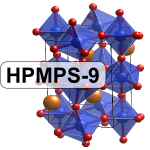The combination of advanced synchrotron x-ray techniques and high-pressure methods provide new level of high pressure studies including mineral physics, condensed matter physics, and high-pressure chemistry. The beamline BL10XU at SPring-8, Japan, has been dedicated to high-pressure powder x-ray diffraction in a diamond anvil cell (DAC). As the accesible pressure and temperature range expands, characterization of minute samples with micron-size requires well-focused and intense synchrotron x-ray probe. We have intensively developed the x-ray optics on focusing for the past decade.
In BL10XU, x-ray beam is focused down to micro-size (2-3 µm) by the x-ray focusing optics of compound refractive lenses. The pressure-temperature (PT) range accessible in the DAC exceeds high-P/high-T conditions 300 GPa and 5,000 K and high-P/low-T conditions above 200 GPa and below 10 K, respectively, and micro x-ray diffraction experiments are performed under such as the extreme conditions. For instance, the structure and electrical resistivity of iron was measured under the core conditions (Ohta et al., 2016), and the crystal structure of high-pressure hydrogen sulfide with high superconducting temperature near 200 K was investigated above 150 GPa (Einaga et al., 2016).
More recently, high pressure experiments increase not only with a single stage type DAC but also with a double stage DAC configuration (Sakai et al., 2015), and the use of a nano-probe is required with spatial resolution for x-ray diffraction. Now we have been upgrading the x-ray focusing optics using compound refractive lenses for generating a sub-micro beam. Here we present overview of the current status of instruments and research for x-ray diffraction on BL10XU, and recent development projects will be discussed.

 PDF version
PDF version
